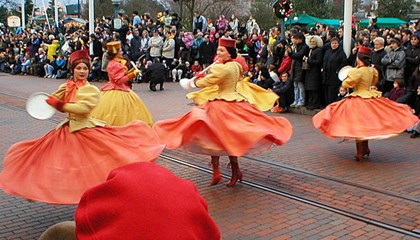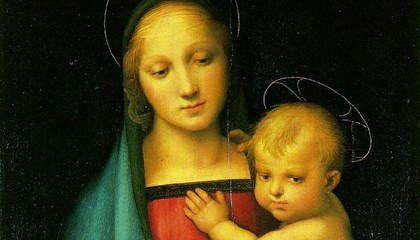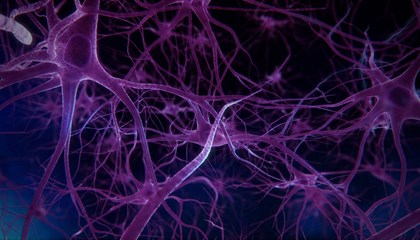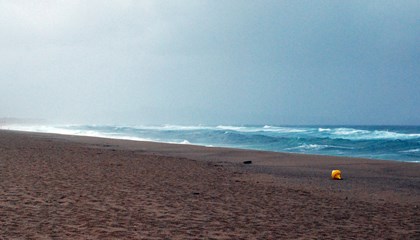The novel is woven around the notion of HIC, whereby the level of intelligence is directly related to the destiny of humanity, which is original even in the context of the currently high interest in the potential of the human brain and mindset. While the choice of character who has undertaken the mission of upgrading humanity is simply amazing. A young man by the last name of Makhorkin and with the familiar first name of Fyodor Mikhailovich, from the town of Sivaya Maska, which is located beyond the polar circle, sets off on foot to Astrakhan to see a potential sponsor, Pentalkin, who might be willing to finance the implementation of Makhorkin’s project.
The main protagonist’s internal monologue, which continues throughout most of the novel, begins with the statement, “Today I can no longer recall what precisely was bothering me—my leg, arm, head, or stomach. But I remember the pain. It was immediately following this sensation that I inadvertently began asking myself, “Who am I really?” That is, the main character immediately lets us know not only how unusual he is, but also how out of tune he is with his own body—he doesn’t know what is hurting. And throughout the entire narration, Makhorkin rejects any manifestation of time-honored human feelings, interests, and sensations. He is a morose and unkempt character, with blackened teeth, scrawny and unprepossessing. Makhorkin emphasizes his unattractiveness, almost lauds it, although at times it seems that it is precisely his torment over his own unattractiveness that prompts him to shun the world by believing in the genius of his own idea. It was born in his mind and has little to do with reality; the main protagonist lives outside the real world. “I hardly notice the outside world at all. I have to make a concerted effort to look at it.”
He denies all sensuous joys and ailments, claiming they are a manifestation of the base existence inherent of Sivamaskins, who, for him, embody everything vile, primitive, and humanly imperfect. Their striving to manage their lives, increase their fortune, love, eat and drink, dress themselves, and even have children arouses utter revulsion in Makhorkin. Whereas Dostoevsky’s underground man basked in his toothache and erected his morbid mental structures around it, Makhorkin has already reached some final stage in rejecting ordinary human manifestations, particularly positive ones. Should Makhorkin suddenly feel something characteristic of the Sivamaskins (and this does happen on occasion), he does not simply brush it off, but tries to obliterate it. “How can I get rid of all this purely human stuff that I hate, not so much in others, as in myself?” The main protagonist sets off on his journey with a sliver of soap, fifteen hundred rubles, a small supply of food, and a very modern computer tablet from who knows where. But this is not important, since he needs it for his ideological progress through the taiga and rare engagements with what is going on in the outside world.
As is common in his creative work, Alexander Potemkin plays out an entire range of ideas and topics. In fact, the recognizable citationality is characteristic of contemporary creative, particularly post-modern, thinking. In this case, we have a travel log, but taken to its logical conclusion. By walking thousands of kilometers in the 21st century, the main protagonist is essentially taking a journey into the recesses of his own mind and constantly makes a point of this. Whereas the young man of the classical travel log becomes enlightened by the adventures and the people he meets along the way and reaches the end of his journey a better person, Makhorkin has also changed by the end, but this transformation goes from interest in his own idea—his complete absorption in it—to utter despair and a tragic end.
At the beginning of his journey, Fyodor Mikhailovich determines his goal and coordinates: “On this journey, and I must understand this, I will not see a real picture of the world, but its distorted image born of my morbid mind. In this understanding, my egoism becomes absolute. …I am alone and have no desire to possess any property, apart from my own, at times nonsensical, thoughts.”
According to Makhorkin, people in general have an extremely low level of intelligence and primitive needs, while contemporary humanity in undergoing hopeless degradation—people are exterminating themselves and those like them (the spread in destruction, war, and hatred is an ongoing theme throughout the novel): “… humanity has already reached its peak. For the last thirty years, it has been hurtling headlong into an abyss. The light that irradiated the heart and mind has dimmed. The revelry of consumption and rapture over paltry thoughts reminiscent of small scraps of the bygone, complete, and even great, now imbue the Universe with a whine…” There is no place for this kind of humanity in the galaxy, and although man is the result of accidental cosmic mutations, the chaos of matter, this product has failed. The only solution is to create a new human being by means of bioengineering with an incomparably high level of HIC.
An essentially new type of man must be created, and this is the task Makhorkin from Sivaya Maska has set himself. Solo Mono will become the product of a nano blend. At first Makhorkin realizes that he is incapable of creating a new man, that all these plans are merely a figment of his imagination, “I dream of improving my species, that is, changing Sivamaskins throughout the world, but I understand very well that for that I need Time, and so I found a compromise that pacifies me: physical rebirth, a change in my own essence, is not as important to me as the constant thought of an incredible miracle…”
From time to time, events that could be construed as plot development distract the main protagonist from his unending internal monologue. I emphasis “construed as,” since the main storyline focuses on Makhorkin’s development from his dreams to complete subordination to his own idea.
At times the main protagonist surprises himself, declaring solitude to be the only acceptable form of existence for him. Makhorkin’s solitude is absolute. Indeed, all of Alexander Potemkin’s characters are loners, but in this case the solitude is impenetrable. And the characters that appear on the pages of the novel only confirm this utter solitude—each is wandering on his own through a somber taiga of their own feelings and thoughts. The natural taiga has nothing to do with it—it is magnificent and resplendent, and although Makhorkin is rarely aware of its beauty, he senses the habits of the animals. But this also affects him tangentially. The taiga of his consciousness is morose and impenetrable.
However, you gradually get the feeling that Makhorkin suffers in his own way from his inability to blend into reality. “I never get disappointed with anything in the outer world, because I do not even see it. I have never exclaimed to myself: “How beautiful!” or “How awful!” When you do not notice the world around you there is, thank goodness, nothing to say. You keep quiet and think things over.” Only a couple of times does he warmly recall the library assistant from his home town who helped him. And once he says, “I only recalled the old woman for an instant and then my reminiscences ceased.” The “old woman” (grandmother) evidently played an essential role in his childhood. All other people are only a mutational error.
Everything about the main protagonist is contradictory and ungainly. On the one hand, he is not interested at all in his fellow countrymen, while on the other, he reflects on the economic crisis, which, given his lifestyle, should be something he is not concerned about in the least. One wonders whether Makhorkin doesn’t perhaps suffer from emotional inanity. As we know, this term from psychiatry is a symptom of severe illness.
And the main protagonist himself often calls his idea obsessive. But the further he goes, the more it entirely engrosses him. “For me they [Sivamaskins—M.F] do not exist. I desire to be their opposite. And that’s all! The only thing I have done to arouse their disdain is declaring to myself, and not publicly, that Sivamaskins are not the end of evolution, and very soon a new being will appear. Solo Mono, my progeny!” The writer skilfully follows the increasing inflammation of Makhorkin’s mind, who is aware of it at times, but less and less frequently. Gradually features of megalomania appear. Makhorkin begins to believe that he will be the one to create Solo Mono.
If the author was aiming to create a feeling of hopelessness, he succeeded brilliantly—the reader literally drags through the taiga along with Makhorkin, both the real taiga and the impenetrable taiga of his inflamed mind. Salvador Dali paintings constantly arise in his consciousness, which become the leitmotif of the narration and, possibly, the key to understanding Makhorkin’s visions. As in all of Alexander Potemkin’s works, the novel presents a broad culturological field—there are roll-calls with Nietzsche, Heidegger, Fyodorov, contemporary philosophers along with topical and character quotations from Gogol, Saltykov-Shchedrin, and Marques. And of course, Dostoevsky, who runs like an ongoing thread throughout fabric of the novel, his legacy providing the main intertextuality.
The novel Solo Mono is even more abrupt and ruthless than the writer’s other works. Whereas Alexander Potemkin used to reflect on the fall of man within human categories and evaluations, now he has presented a character removed from the system of human feelings and values. Whereas his previous novels centered primarily around the destiny of Russia, Solo Mono issues a verdict on the current state and degradation of the whole of humanity. It is a programmed novel written in the author’s style we are already familiar with, philosophical substantiation intertwined into all the layers of artistic fabric and dissection of the devastated world and the humans in it, of the individual and the whole of humanity.
We wonder why the thoughts and ideas that concern the author himself are entrusted to a “defeatist,” a wretched person? Someone who does not believe in the Creator undertakes the divine mission of creating a new man. But if we look from a different perspective—from the position of humanistic Russian literature, we see an unhappy, unloved, and uncared-for person who possibly has immense untapped potential. However, this potential is aimed at ideas incommensurable with the human dimension which, while creative in intention, prove to be destructive for him. He dreamed of his creation inhabiting the entire Cosmos, but the abyss of the Cosmos and limitless Time prove to be a dead-end for him. However, Alexander Potemkin is almost always unpredictable in his creative thought. Could this character, who lives on the verge of a flight of reason and the chimeric inflamed mind, possibly be the herald of a breakthrough into new horizons?
Many questions are left unanswered. In our day and age, when it is clear to all intelligent people that humanity has reached the limit beyond which it is either headed into an abyss or must search for essentially new ways, when artificial intelligence is a real and imminent threat, reflections on possible alternatives are extremely pertinent. And Alexander Potemkin’s novel immerses us in the most arduous, but inevitable reflections of humanity.
For perhaps there is way out of the crass taiga mind. And if humanity must be upgraded and not destroyed, perhaps this gives us reason for hope.







